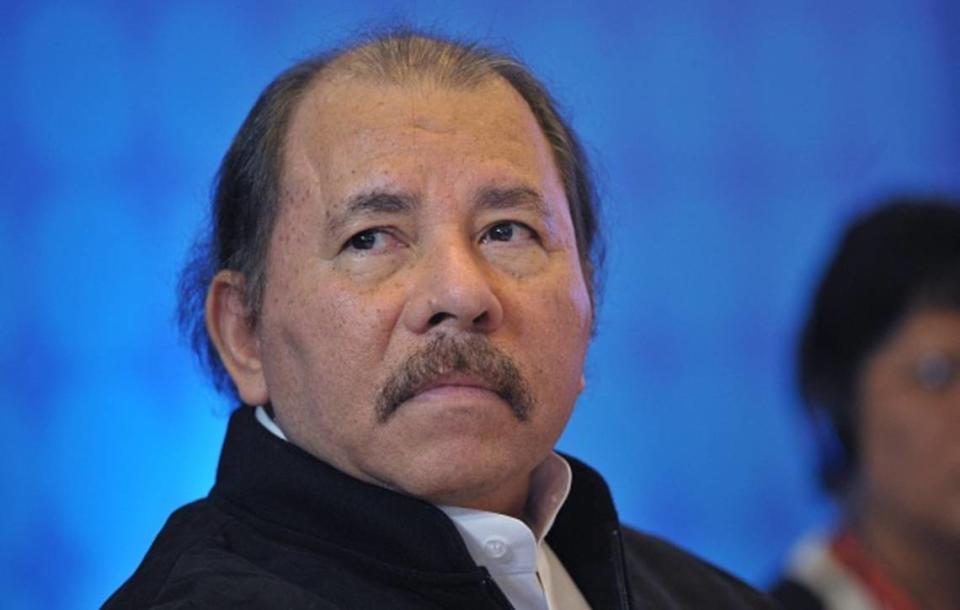South Florida lawmakers increase pressure on Ortega ahead of Nicaraguan elections
- Oops!Something went wrong.Please try again later.
- Oops!Something went wrong.Please try again later.
- Oops!Something went wrong.Please try again later.
- Oops!Something went wrong.Please try again later.
- Oops!Something went wrong.Please try again later.
Republicans and Democrats in Congress, including most of South Florida’s representatives, are introducing new legislation in response to an ongoing crackdown on political dissent in Nicaragua by leftist President Daniel Ortega.
On Thursday, Miami Republican Rep. Maria Elvira Salazar introduced a bill that would require the Biden administration to re-examine an existing free trade agreement between the U.S. and Nicaragua after Ortega arrested political opponents ahead of elections scheduled for November.
Salazar, who previously worked as a journalist in Nicaragua and once interviewed Ortega, introduced the bill with New Jersey Democratic Rep. Tom Malinowski, who served as former President Barack Obama’s assistant Secretary of State for democracy, human rights and labor. Miami Republicans Mario Diaz-Balart and Carlos Gimenez also signed onto the legislation along with Florida Democratic Reps. Stephanie Murphy and Charlie Crist, who is running for governor.
The bill, if passed, would require the United States Trade Representative to review Nicaragua’s compliance with the Dominican Republic-Central America Free Trade Agreement, a pact signed into law in 2005.
“Under Daniel Ortega, Nicaragua has become a land of oppression,” Salazar said in a statement. “Ortega’s thugs are jailing political opponents and violently silencing dissenting voices. I’ve introduced the Nicaragua Free Trade Review Act because trade with the United States is a privilege, not a right. We must show Ortega’s regime that they cannot continue repressing the Nicaraguan people while reaping the economic benefits of free trade with the United States. America should not be in the business of trading with dictators.”
Malinowski said “there’s no reason the United States should reward [Ortega’s] regime with preferential access to the U.S. market” unless he releases political opponents from prison and commits to democratic reforms.
Last week, the Biden administration sanctioned four people, including Ortega’s daughter, after the Treasury Department accused them of aiding Ortega’s ongoing crackdown on free and fair elections. Camila Ortega has managed a family-run TV channel since 2011 which the U.S. said spreads pro-Ortega propaganda while using state funds and tax loopholes to sideline independent news outlets.
Early this month, Ortega placed Cristiana Chamorro, the leading opposition candidate in the November presidential elections, under house arrest just hours after she officially announced her run for the presidency. Two other potential candidates, Felix Maradiaga, an academic and political activist, and Juan Sebastián Chamorro, an economist, were also arrested in recent weeks.
The arrests effectively prevent opponents from campaigning against Ortega ahead of the elections. The U.S. has said it will not recognize the election results if Ortega continues to repress political opponents ahead of the vote.
In March and April, the House and Senate introduced the Reinforcing Nicaragua’s Adherence to Conditions for Electoral Reform Act, a bill that requires targeted sanctions to advance elections in Nicaragua, coordinates U.S. sanctions with Canadian and European diplomats, requires classified and unclassified reports on Ortega’s corruption and Russian involvement in Nicaragua and supports independent media in the country.
The bill, originally introduced by Florida Republican Sen. Marco Rubio and New Jersey Democratic Sen. Bob Menendez, is scheduled for consideration in the Senate Foreign Relations Committee on June 22.
“As the regime plans to hold elections, we must ensure the U.S. and our allies are creating new initiatives to address Ortega’s corruption, human rights abuses, and the ongoing repression of members of the independent press,” Rubio said in a statement.
Salazar, Gimenez, Diaz-Balart, and South Florida Democratic Reps. Debbie Wasserman Schultz and Ted Deutch also signed onto the bill.
On Monday, Menendez and Rubio sent a joint letter to Secretary of State Antony Blinken, urging the Biden administration to use their legislation, which has yet to become law, as a guide as it considers further action against Ortega.
“The Biden administration’s announcement of new targeted sanctions against Daniel Ortega and Rosario Murillo’s daughter and three of the regime’s financial and political operators mark an important response, but additional steps are needed,” Menendez and Rubio wrote. “This authoritarian power grab poses direct challenges to U.S. national security, regional stability, and raises deep concern among Nicaraguan-Americans in the United States. The situation must be met with a coordinated response from the international community.”



